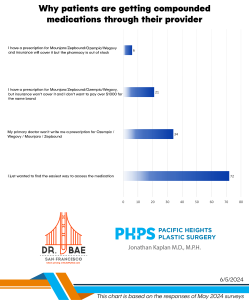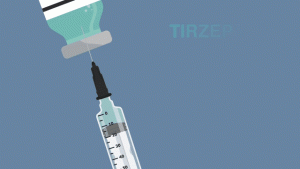 No matter what procedure you’re having, you’ll need to prepare for some physical (and possibly emotional) limitations after surgery. Set yourself up for success with a few insider tips, as recommended by former surgical patients.
No matter what procedure you’re having, you’ll need to prepare for some physical (and possibly emotional) limitations after surgery. Set yourself up for success with a few insider tips, as recommended by former surgical patients.
A few things I wish I knew before surgery
Post-op constipation is real.
The combination of narcotic pain medications, decreased activity, and poor dietary intake can lead to some serious constipation, so drink all the water, eat all the fiber, and walk, walk, walk. Unless you have other medical issues, you’ll need 2-3 liters of water (sorry, your coffee doesn’t count), and 20-30 grams of fiber every day. For reference, a serving of bran cereal has about 5.5 grams; fiber supplements like Metamucil can help you meet your goal and are actually pretty tasty these days.
As for walking, we like our patients up and walking the same evening of surgery (but always defer to your doctor’s instructions). Walking not only staves off constipation, it’ll also help prevent potentially fatal blood clots, so win-win.
What you eat, drink, and do can affect wound healing.
We already discussed the copious amounts of water and fiber you’ll be consuming, but there are other nutrients you’ll need to be aware of to help maximize your recovery. Low fat protein, zinc, calcium, and vitamins C & D are important factors in wound healing. And while it’s always better to get your nutrients from whole food sources, supplements may be beneficial to some people. Try a calorie tracking app on your phone to see how your nutritional intake stacks up.
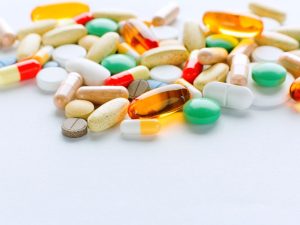 On the flip side, there are a few things you should avoid, as they are known to delay or complicate wound healing. Nicotine is the biggest “NO” out there, but you should also monitor your intake of caffeine (like that coffee we talked about), alcohol, and excessive salt and sugar. A balanced diet of fresh fruits, veggies, and lean protein is almost always best.
On the flip side, there are a few things you should avoid, as they are known to delay or complicate wound healing. Nicotine is the biggest “NO” out there, but you should also monitor your intake of caffeine (like that coffee we talked about), alcohol, and excessive salt and sugar. A balanced diet of fresh fruits, veggies, and lean protein is almost always best.
What about lymphatic massage? We get asked this a lot. Lymphatic massage purportedly helps relieve pain and swelling, break up scar tissue, and improve blood flow to the area, thus promoting healing. There isn’t much data available to back up these claims, but some people swear by it (while others find it painful). We tell our patients they are welcome to try it if they’re interested, but we can’t promise any specific results from it.
Post-procedure depression can happen.
A lot goes into your emotional wellbeing after surgery, such as a personal history of depression/anxiety, reaction to medications, concerns about recovery, feelings of guilt for depending on others, or financial stress. For some people, these negative emotions can linger to become post-op depression. If you can’t shake the negativity or if you’re having excessive fatigue, changes in appetite or sleep, increased irritability, or any other symptom of depression, it’s important to get the help you need. Talk to your doctor if you have concerns about post-operative depression.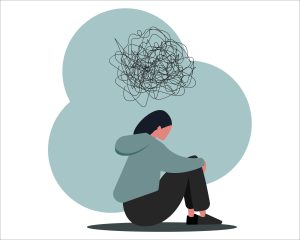
Good help will be invaluable and meal prep is a life saver.
In the days leading up to your surgery, go over your needs and expectations during recovery with your primary caregiver. Will you need dressings or other supplies? Get them now. Depending on the surgery, you might want to have gauze, medical tape (look for soft fabric or paper tape, not plastic), and maybe some “chux”/puppy pee pads – those absorbent pads you can put down to catch drainage, etc. Have some gloves available if you need help with dressing changes. Check with your doctor to see what you might need. Don’t forget your personal hygiene needs during this time as well. You might want to pick up some dry shampoo, baby wipes, or body powder if full showers are limited. A bidet attachment on your toilet might be worth the investment – they’re under $50 and easy to 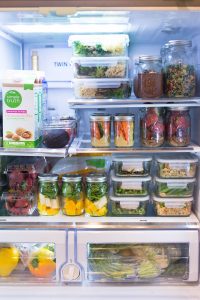 install. Do you have periods? Stock up on your supplies and discuss any assistance you’ll need with your caregiver.
install. Do you have periods? Stock up on your supplies and discuss any assistance you’ll need with your caregiver.
Also use this time to meal prep – whip up some big pans of lasagna or casserole to freeze for later. Stock up on easy to eat, nutritious foods like whole grain toast with peanut butter, soups, and produce. If you know you’re prone to nausea, crackers and ginger ale are good to have on hand. Fresh out of anesthesia, the B.R.A.T. (bananas, rice, applesauce, and toast) diet is nutritious and easy to digest.
One last consideration is maneuverability in your home. If you’re going to need assistance – whether it’s another person or it’s equipment like a walker or crutches – you’ll probably need to make space. Take some time to move trip hazards like area rugs or power cords and consider if you’ll need things like grab bars in your shower or near your toilet.
Written by Jennifer “Coop” Cooper MS, APRN, AGACNP-BC, Sergeant, US Army (veteran)
Click here for the original blog post written by Jennifer Cooper MS, APRN for BuildMyHealth.


